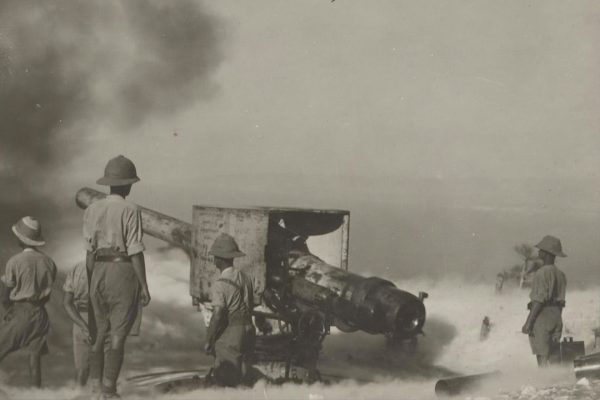In a previous post on reforming our church government we explained that, in order for our church to be more faithful to Scripture and obedient to our Lord in the area of polity (i.e., church government) we must ultimately become an elder-led congregational church—a church that is ruled by Christ, governed by the congregation, led by elders, and served by deacons. This means that we not only need to amend our constitution and by-laws concerning the officers of the church, but we must also understand the roles and responsibilities of elders, deacons, and members.
The Role of Elders
When we come to the New Testament, the evidence indicates that every church had a plurality of elders. Merkle writes, “There is no example in the New Testament of one elder or pastor leading a congregation as the sole or primary leader”1Benjamin L. Merkle, “The Biblical Role of Elders,” in Baptist Foundations: Church Government for an Anti-Institutional Age (Nashville, TN: B&H Publishing Group, 2015), 285. (see Acts 11:30; 20:17; Php. 1:1; 1 Tim. 5:17; Titus 1:5). But what do elders do?
First, elders pray (Acts 6:4; Jas. 5:14). Elders plead for the flock of God under their care. They pray for the souls over whom they keep watch and for whom they will have to give an account. We see this commitment to pray in the decision of the Apostles in the early church, who appointed others to serve the needs of the growing church so that they might devote themselves “to prayer and to the ministry of the word” (see Acts 6:1-7). For them, prayer was a time-consuming labor that inevitably caused other duties to be set aside.2John Piper, Brothers, We Are Not Professionals: A Plea to Pastors for Radical Ministry (Nashville, TN: B&H Publishing Group, 2013), 76. In order for a pastor to be effective in his ministry, he must be faithful to pray. He must be fully reliant upon the power of God, who alone “gives the growth” (1 Cor. 3:7). “Intercessory prayer is perhaps the most basic ministry of the elder. In order to speak to men for God, elders must speak to God for men. They must be away of the futility of all their actions apart from the life-giving work of God’s Spirit.”3Mark Dever, Understanding Church Leadership, Church Basics series (Nashville, TN: B&H Publishing Group, 2016), 24.
Second, elders preach and teach (Acts 6:4; 2 Tim. 4:1-5). Elders serve the word to the sheep under their care. Since God rules his people by his Word, elders must be faithful to proclaim the Word to God’s people. As the Apostles devoted themselves to prayer, they also devoted themselves to the ministry of the word (6:4). Because “faith comes from hearing, and hearing through the word of Christ” (Rom. 10:17), because we are born again through the word of God (1 Pet. 1:23), because all Scripture is profitable to make the man of God “complete, equipped for every good work” (2 Tim. 3:16-17), this is an indispensable component of pastoral ministry.
Elders are called to rightly handle the word of truth (2 Tim. 2:15) and declare the whole counsel of God (Acts 20:27); therefore, they must be devoted to knowing God’s Word. Pastors proclaim Christ, “warning everyone and teaching everyone with all wisdom” in order that they may present the sheep under their care “mature in Christ” (Col. 1:28). It’s crucial to remember that “the Bible alone is absolutely authoritative in a church’s life. . . . Elders bear authority over Jesus’s church only to the extent that they teach, obey, and enforce Jesus’s word.”4Jeramie Rinne, Church Elders: How to Shepherd God’s People Like Jesus, Building Healthy Churches series (Wheaton, IL; Crossway, 2014), 81. Elders lead by standing before their congregation on behalf of the Lord Jesus Christ and proclaiming his rule, his truth, and his commands.
Third, elders shepherd (Acts 20:28; 1 Peter 5:1-5). Elders are intimately involved with their sheep in order to see them grow in Christian maturity. They should, as one pastor puts it, smell like sheep. Peter exhorts elders: “Shepherd the flock of God that is among you, exercising oversight, not under compulsion, but willingly, as God would have you; not for shameful gain, but eagerly; not domineering over those in your charge, but being examples to the flock” (1 Pet. 5:2-3). The Apostle Paul encouraged the Ephesians elders to “pay careful attention to yourselves and to all the flock, in which the Holy Spirit has made you overseers, to care for the church of God, which he obtained with his own blood” (Acts 20:28). Elders shepherd God’s flock! Shepherding involves such responsibilities as providing godly counsel and biblical instruction, helping resolve conflicts peacefully, protecting the flock from wolves, caring for struggling sheep, and providing oversight of the spiritual well-being of the flock. (This is also why church membership matters: Elders need to know who their flock is!)
Fourth, elders lead by example (Heb. 13:7; Titus 2:7). Elders not only lead by teaching the Word but by obeying Christ and modeling Christian maturity. They are to not only keep a close watch on their doctrine but also on themselves and their families (1 Tim. 3:2-7; 4:12, 16; Titus 1:6-9). As elders teach the congregation to trust God and grow in godliness, loving and persuading them to obey Christ, Hebrews 13:17 calls believers to “obey your leaders an submit to them, for they are keeping watch over your soul.” (Again, membership matters!). But earlier, in Hebrews 13:7, believers are commanded: “Remember your leaders, those who spoke to you the word of God. Consider the outcome of their way of life, and imitate their faith.” Elders lead not only by teaching sound doctrine but by imitating Christ! Jeremy Rinne writes:
God has called elders to be men worth imitating. . . . When a church appoints a man to be an overseer, it is formally saying, ‘Here is an official, church-recognized example of a mature follower of Jesus.’ He is not the only example, not a perfect example, and not necessarily the best example in that congregation for every single Christian virtue. But an elder is a duly designated model nonetheless.5Rinne, Church Elders, 101.
Fifth, elders raise up elders (2 Tim. 1:14; 2:2). Elders disciple and train specific individuals to carry on the work of gospel ministry. As Paul wrote in 2 Timothy 2:2: “What you have heard from me in the presence of many witnesses entrust to faithful men, who will be able to teach others also.” As God’s stewards (Titus 1:7), pastors are entrusted with oversight of both the household and the truth of God. Not only must they seek to preserve the truths of the gospel for their own generation, but they must see to it that the faith once for all delivered to the saints be carried into the next generation of sheep.
The Role of Deacons
When it comes to the role of deacons in the local church, the Scriptures are surprisingly quiet. In fact, “We have no description in the New Testament of deacons acting as deacons, with the single exception of Acts 6, which, while controverted, is still widely used as a model for the ministry of deacons. Aside from that episode, we have no example of deacons at work.”6John S. Hammett, Biblical Foundations for Baptist Churches: A Contemporary Ecclesiology (Grand Rapids, MI: Kregel Publications, 2005), 193. Writing to the Philippians, Paul addresses “all the saints in Christ Jesus . . . with the overseers and deacons” (Php. 1:1). We find the qualifications of deacons following those of elders in 1 Timothy 3:8-13. In these passages, the Greek word diakonos refers to an office. But the word is often used in a more general sense to mean simply ‘servant’ or ‘minister.’ Even in Romans 16:1, when Paul commends “Phoebe, a servant of the church at Cenchreae,” who was “a patron of man and of [Paul] as well,” it’s debated whether she was an official deacon of that church or simply a faithful servant of the church. All Christians are diakonoi!
However, the Bible is clear that the office of deacon is indeed one of the two scriptural offices to be found in a local church, and it is an indispensable office for gospel ministry. Deacons care for the physical, logistical, and practical needs of the church in order to support the ministry of the elders and to maintain unity in the body (Acts 6:1-7). “They are not the spiritual leaders of the church. Instead, based on the pattern established in Acts 6 with the apostles and the Seven, it seems best to view the deacons as servants who do whatever is necessary to allow the elders to accomplish their God-given calling of shepherding and teaching the church.”7Benjamin L. Merkle, “The Office of Deacon,” in Baptist Foundations: Church Government for an Anti-Institutional Age (Nashville, TN: B&H Publishing Group, 2015), 319-20.
Deacons support the elders’ ministry of the Word by being responsible for tasks not related to shepherding and teaching. Under the oversight of the elders, deacons may be responsible for the practical details of church life: facilities, finances, benevolence, meals, guest services (such as ushers and greeters) security, media and technology, the Lord’s Supper, and so on. “Perhaps one reason why, in the providence of God, we are not given an explicit job description for deacons is to allow them the flexibility to serve in a variety of roles.”8Hammett, Biblical Foundations, 195. As for the number of deacons needed in a church, there should not be a set number or limit. (Acts 6 is narrative more than normative). Rather, the number of deacons should be determined by (1) the needs of that particular church and (2) the number of qualified deacon candidates.
The Role of Members
While the Christian church recognizes the offices of elders and deacons, it is also appropriate (and biblically warranted) to understand church membership as an office as well. Members, possessing the keys of the kingdom (Matt. 16:13-19; 18:15-20), are obligated to perform certain duties. Jonathan Leeman, who has written extensively about church membership, provides a helpful list of job responsibilities for church members: (1) Attend church regularly; (2) Help preserve the gospel; (3) Help affirm gospel citizens; (4) Attend members’ meetings; (5) Disciple other church members; (6) Share the gospel with outsiders; (7) Follow your leaders.9Jonathan Leeman, “Your 7 Job Responsibilities as a Church Member“
The Bible makes the role of members undeniable, unmistakable, and unavoidable: discipleship. Discipleship is simply God’s people helping God’s people to do all that Jesus commands. We have been given the task of preaching the gospel, making disciples, and being ambassadors of reconciliation (Matt. 28:18–20; 2 Cor. 5:18–20). We are called to protect the gospel (1 Tim 5:19-20; 2 Thess. 3:6; cf. Gal 1:6) and put the gospel on display by living a life of holiness, love, and grace. Leeman writes, ” Our work is to share and protect the gospel, and it’s to affirm and oversee gospel professors—church members. . . . The job here is bigger than showing up at members’ meetings and voting on new members. The church member’s job lasts all seven days. Ours is the work of representing Jesus and protecting his gospel in each other’s lives every day.”10Jonathan Leeman, “Church Membership Is an Office and a Job”
Here at ECC, the role of members is found in our membership covenant. This covenant summarizes the commands of the Lord Jesus given to those who belong to him and his church. Obedience to these commands proves our profession of faith and baptism to be genuine. In fact, church membership is what it looks like to be a disciple of Jesus; a disciple is a healthy church member.
Conclusion
Church polity is inevitable. Every church has a particular understanding of and implementation of church government. The question is whether or not your understanding and practice of church government is biblical and pleasing to God. While church polity can seem like a trivial matter, understanding the offices in the church is vital for being faithful to what God commands in Scripture and for having a healthy church.
So, to sum it all up: Elders equip the saints to do the work of ministry. Deacons serve the church by supporting the work of the elders. And members of the body of Christ make disciples by being key-wielding citizens of heaven through membership in a local church.




